Bhutan – The Last Shangri-La?
“Bring the carven image in.
Bear it to Athena,
Fit gift for the child of Zeus”
– the people of Troy on discovering the wooden horse
‘Those toilets will never do‘. A red mark is jotted down next to the name of whichever site on our itinerary we happen to be visiting. A note to self not to return and an almost veiled threat to our hosts that unless something is done about the plumbing, this is one attraction that will not be receiving our tourist dollar. Back in the minivan and onto the next assessment.
Bhutan, wonderful Bhutan, the last great Himalayan Kingdom, a place so shrouded in mystery, secrecy and magic even, that most of us, if we have ever given it any thought at all, have it filed away in our mind as ‘somewhere in the mountains, Tibet kind of way‘. A friend of mine comments on a photo on my instagram, ‘Wow you are in the last Shangri-La, what’s it like? I have to visit‘.
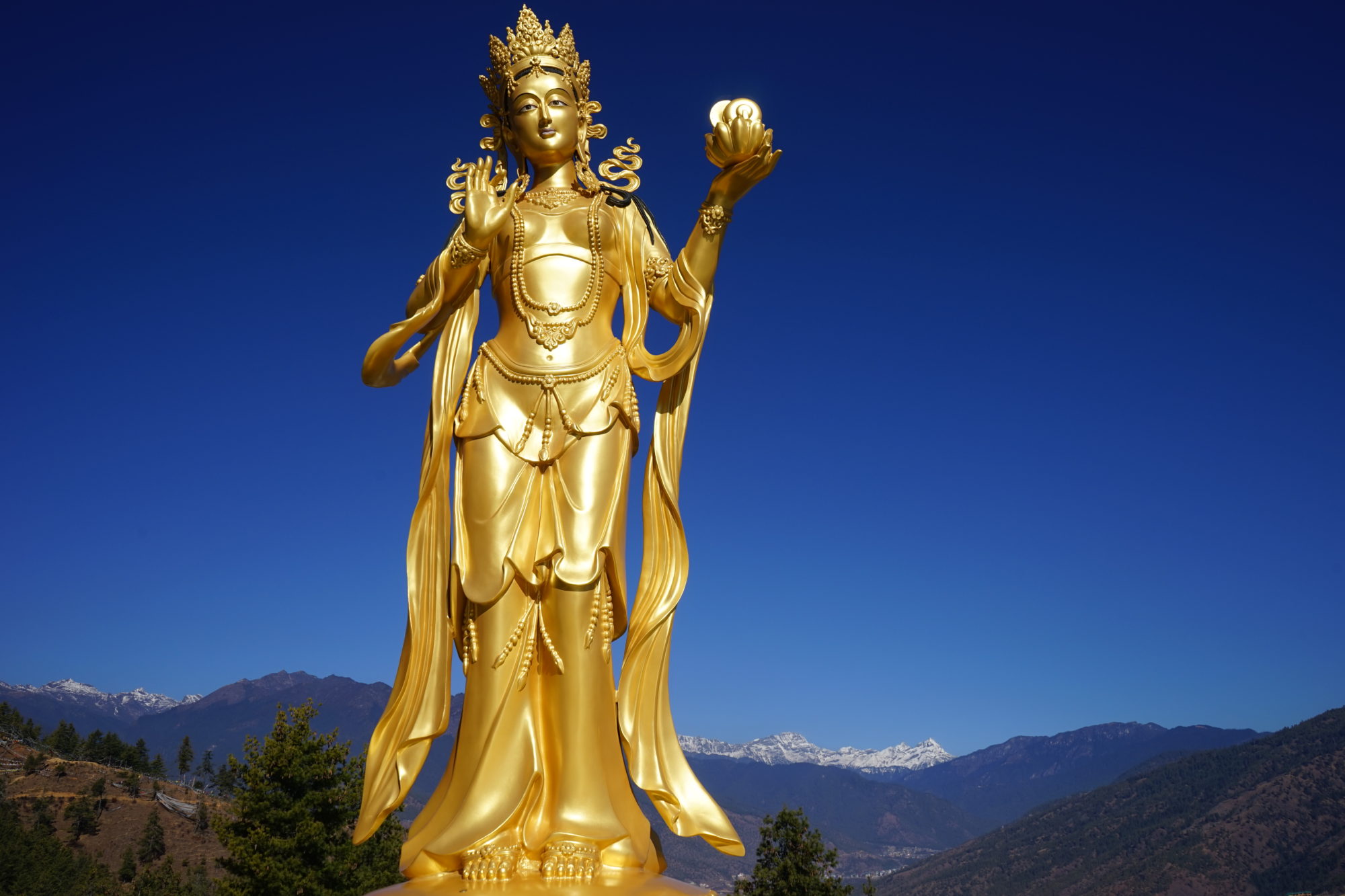
‘The last Shangri-La?‘ His comment strikes me and recalls the fabulous interwar novel by James Hilton, Lost Horizon, in which four Westerners end up in the mythical valley of Shangri-La. The name translates from Tibetan to mean roughly Shang Mountain Pass. Today Shangri-La has become synonymous with any earthly paradise, though particularly a mythical Himalayan utopia, a permanently happy land, isolated from the world.
In 2001 an entire county in China renamed itself Shangri-La in an attempt to attract tourists. In the BBC episode ‘Shangri-La’ of the documentary series In Search of Myths and Heroes, presenter and historian Michael Wood suggests that the legendary Shangri-La is the abandoned city of Tsaparang in the Upper Satluj Valley. And in the ancient Tibetan scriptures, the existence of seven such places is mentioned (hidden lands similar to Shangri-La) believed to have been created in the 9th century as idyllic, sacred places of refuge for Buddhists during times of strife. Yet no one has ever succeeded in pinning it down.
However, rather than an historical place, more often, today Shangri-La takes on a personal, spiritual even, meaning as a non site specific location. More of a state of mind. The mythical ‘destination’ of a quest we can each choose to undertake to find that special place, or feeling, in which Western 21st Century man or woman can finally call themselves happy.
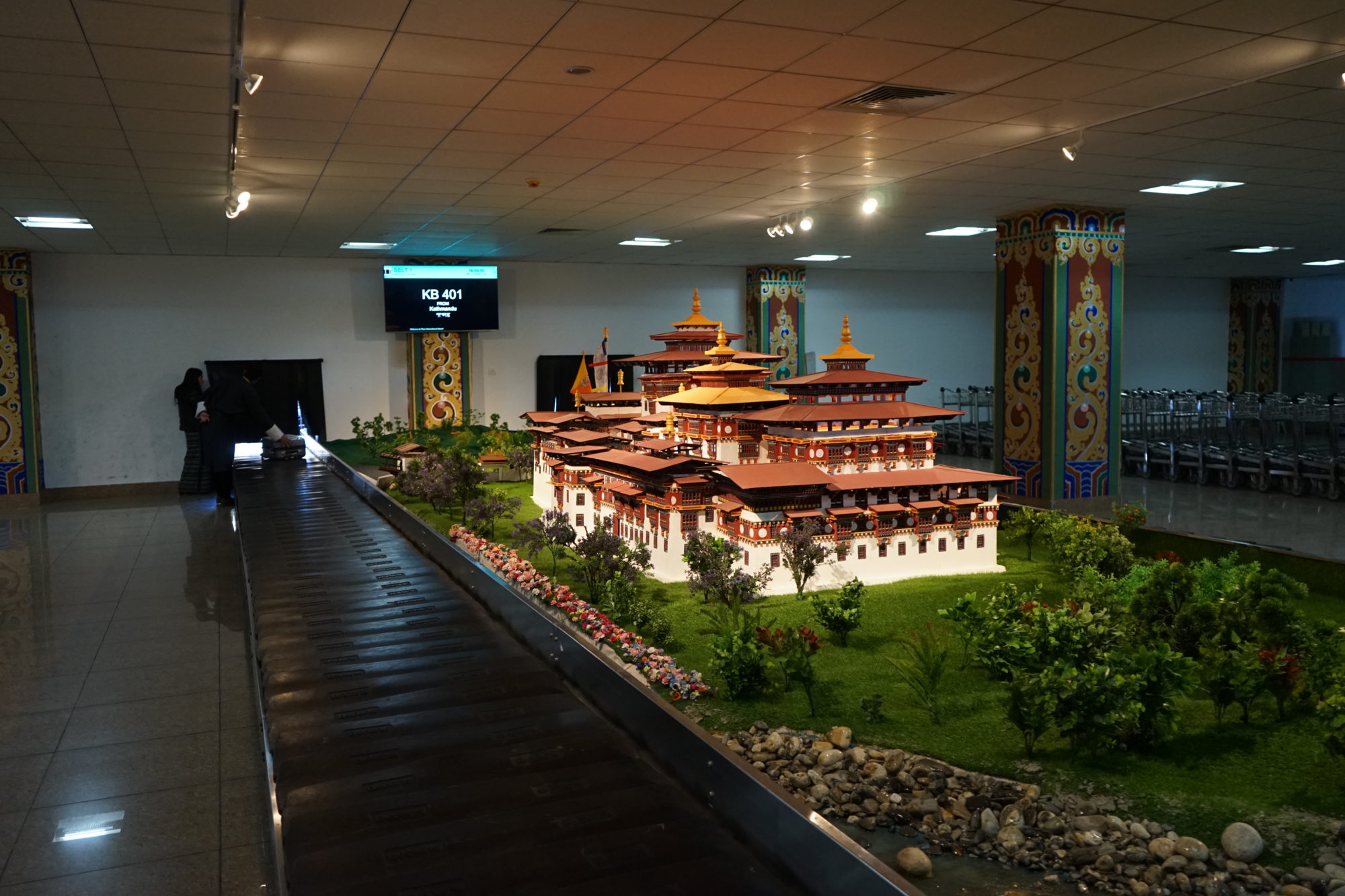
And yet here I am in this earthly Paradise rating toilets from one to five. Certainly not how I might have envisaged happiness. Now admittedly, the evaluation of sanitary facilities is only a small (if disturbingly significant) part of my role. I am today a Tour Guide invited on, what’s referred to in the business as, a ‘reconnaissance trip’ to Bhutan. As part of a four person team, and accompanied by a local guide, Subesh, we have 6 days to cover as much ground, see as many hotels, restaurants, sites, walks, attractions etc as possible. The ‘data’ is then brought home, analysed, priced and assembled as an itinerary, before being marketed as ‘Authentic Bhutan – The Last Shangri-La‘ or something similar. A recreational recipe that hundreds, perhaps thousands of package tourists will be able to follow over the next decade or so.
When it comes to tourism, Bhutan has a motto; ‘High Value, Low Volume’. The particular agency acting as my master for this trip proposes group holidays for up to roughly forty people at a time. As a result we straddle the philosophy of the Tourism Council of Bhutan. Very reasonably priced holidays probably just under the high value threshold, but with a couple of guests too many in the lines for the toilets to be considered low volume. Bhutan for example does not even permit large fifty seater European style tour buses. However we are told we can hire two smaller ones and, in order to hear the guide in both, hook passengers up to the same listening devices. In other words, there is a way.
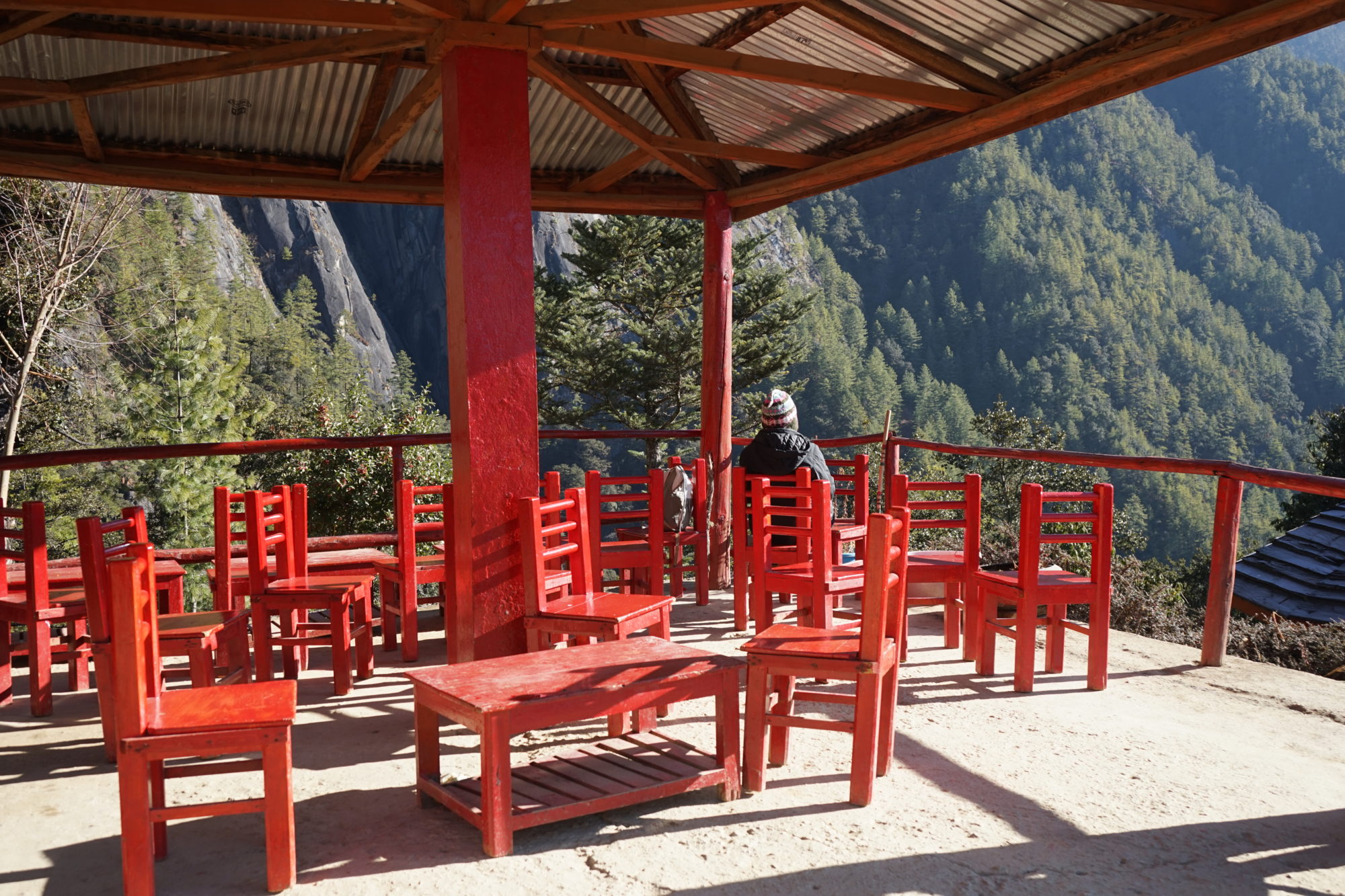
I have been a guide now for twenty seasons and a solo traveller since the age of 18 when I bought my first InterRail ticket and travelled all over Europe. In 25 years I have visited 99 different countries returning to many, whether for work or leisure countless times. I cannot think of one single place about which I could hand on heart say ‘x has improved’ in those 25 years, not one. I have lived three months in Venice, a city that now receives an average of 30.000 tourists per day; last year we were more or less forced out of the centre of Barcelona as rent goes up thanks to booking.com and air b and b, among others; Prague is a shadow (or more accurately neon sign nightmare) of it’s former self; I, like others have advised ‘go to Cambodia now as it is as Vietnam used to be‘. And anyone with a smidgin of interest in iconic Cuba, well if you don’t already have a ticket booked, you are for sure too late.
I realise the hypocrazy and double standards in this, I am someone who has made a living out of travel. I am perhaps, it could be argued, part of the problem. At the inauguration of The Museum of Tomorrow in Rio a few years back, a detailed questionnaire on giant computer screens, spat out the conclusion that, if all occupants of this earth lived as I did (largely due to the volume of flights I take), we would need 4.5 planets to support such a lifestyle.
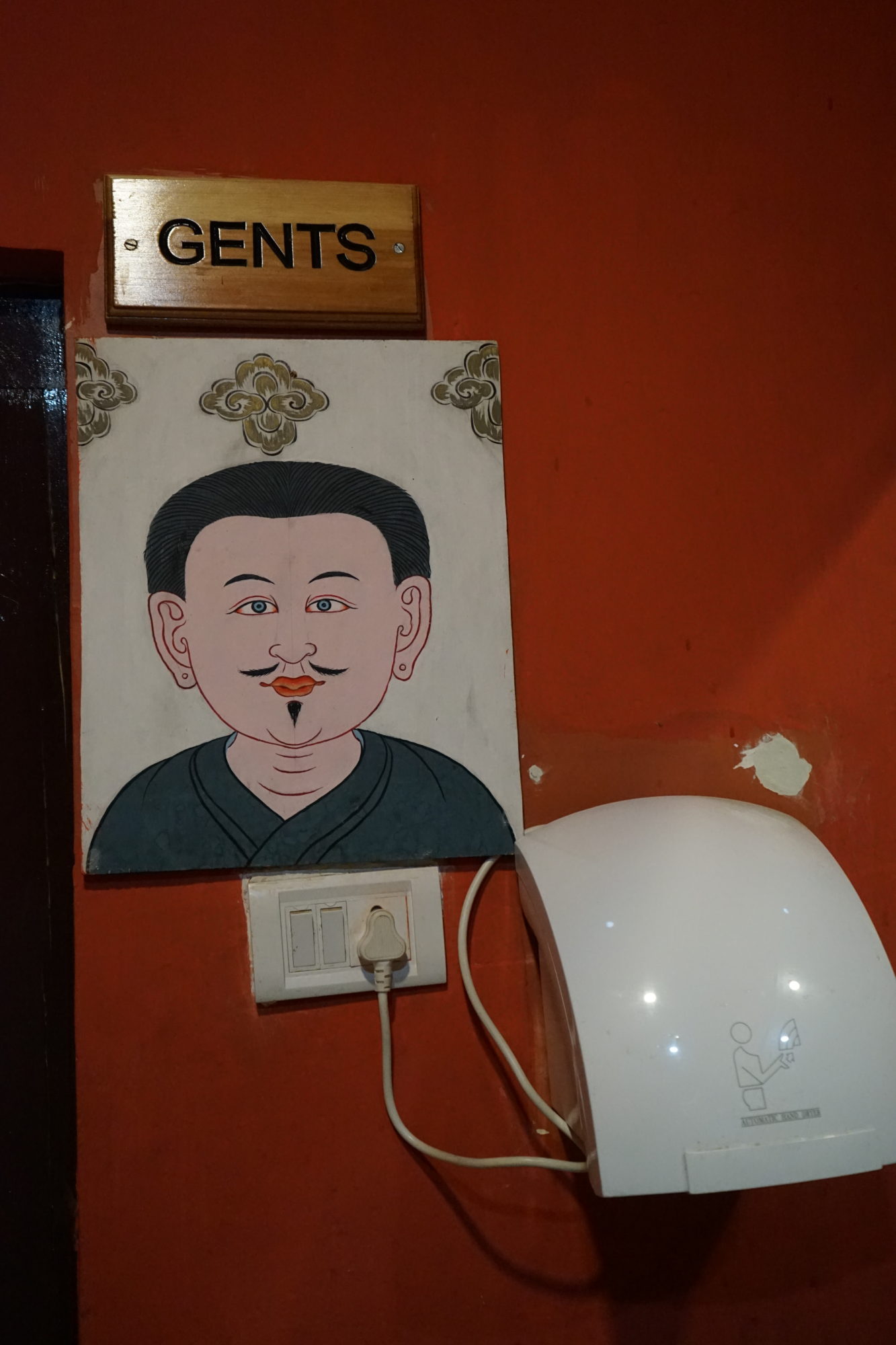
I am not saying that the livelihoods of people in some of the these places have not improved, even perhaps, though I am more sceptical here; so to the happiness and well being of host places. And here we have it; happiness…
You see Bhutan is different. We are joined at dinner one evening by Pema Thinley formerly a Government employee responsible for the collection and analysis of the Gross National Happiness questionnaire. The what? Well, every 4 years the Government (and the King, who rule jointly) survey roughly 10% of the 750.000 total population in order to assess how happy they are. Yes, happy. Not rich, healthy, ambitious, etc, though these are also factors in an interview which lasts a minimum of four hours. At the end of it all, policies are made or adjusted according to areas in which people, of all walks of life, would like to be happier. As we listen, and fused with local strong beer and great curries, ours becomes a mind shifting evening. The very concept that Governments govern in such a way as to make their people happier is so mindnumbingly obvious yet so far from what I have been brought up on in the West. I take a long time to fall asleep that night.
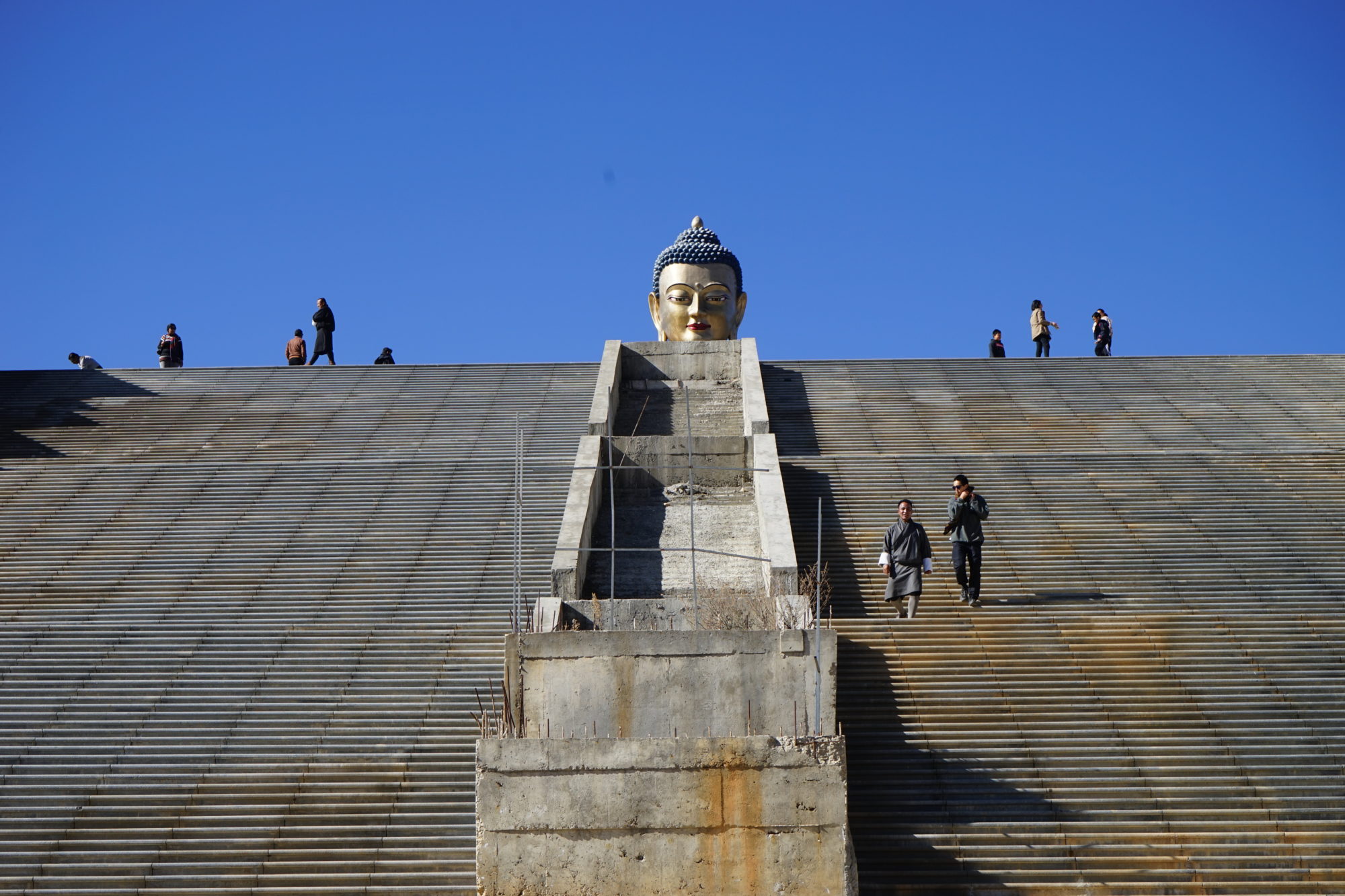
The next day, Subesh, our guide picks us up early as always and we are back on the road. Wherever we go we demand change, holding to ransom our tourist dollar against Western fully ceramic toilets, big hotel rooms, air conditioning and food everyone will like. It becomes for me a very uncomfortable feeling to walk around with some of the gentlest, kindest people I have met, pointing out what needs to be improved in order that more of us Westerners may come. It varies from the sublime to the ridiculous – cold in the corridoor that leads to the hot pool, rooms too dark, the monk who is willing to let us into the temple where he resides, but has too strong of an accent and the British might not understand.
‘Authentic’, ‘discover’, ‘explore’… the buzzwords, the marketing gems that sell experience-led travel in 2020. How often do I read ‘visit to an authentic this or that’. Yet as soon as things get a little ‘too authentic’ restaurants, hotels, experiences are instantly removed from itineraries. ‘Discover’ or worse ‘explore’. Yet what we do and encourage is the antithesis of both. Giving someone ‘free time’ within a well defined area, complete with back-up mobile numbers, meeting times and places has nothing to do with exploration or discovery. Itineraries are scheduled to the very last minute. I was recently at Tour Guide training in Rome where we were instructed almost word for word what to say each day. Obviously I understand the appeal of group travel; not needing to think, safety in numbers, decent itineraries, the ability to see more faster and above all low cost. The environment to one side, it is perhaps a better form of travel than none at all. But is it authentic, are you discovering or exploring? Nay, no and nope.
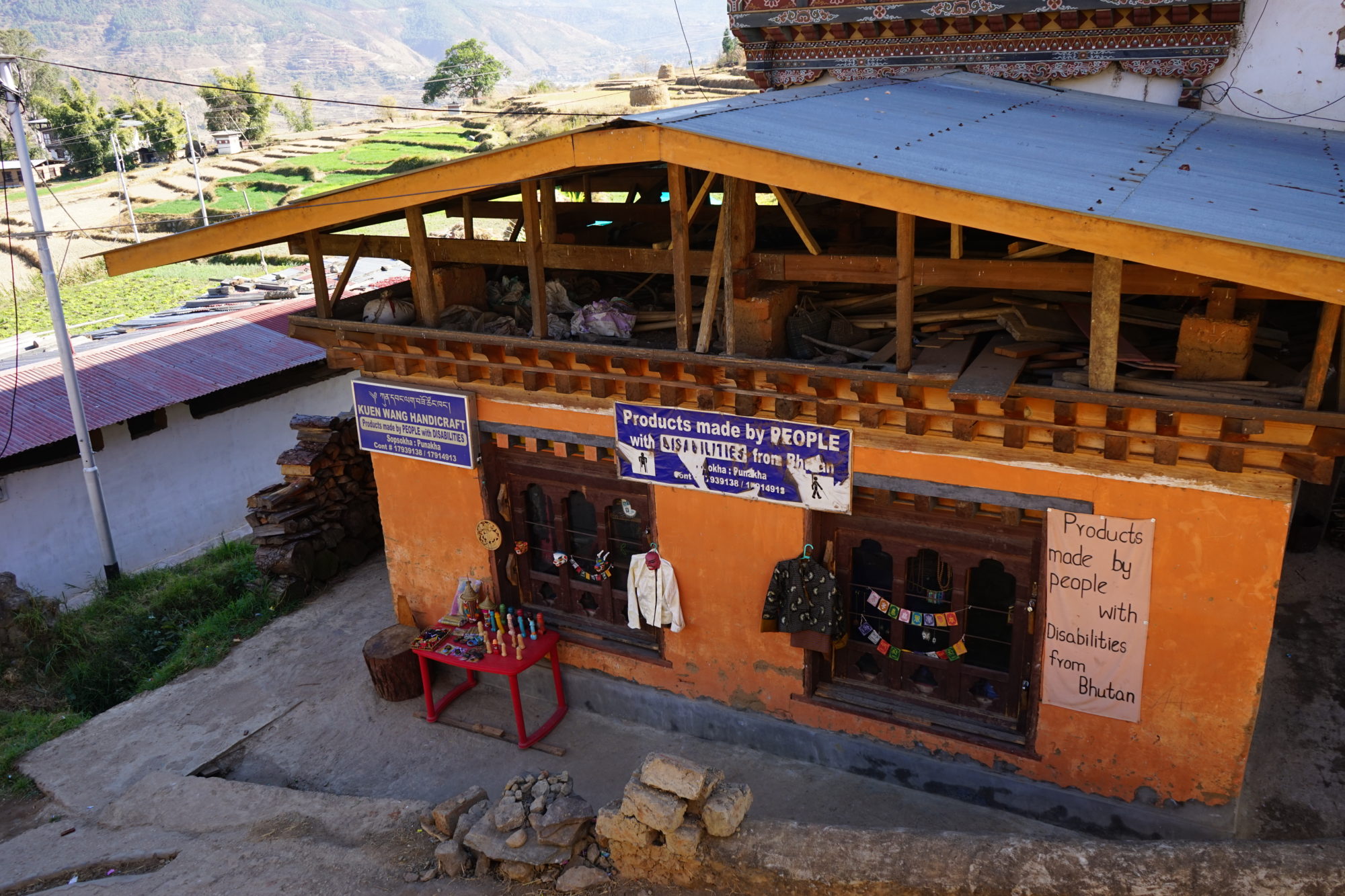
What is the solution then? Does Bhutan say, no tourists? Do we stop travelling as, in the pursuit of authenticity, you might as well again be chasing smoke with a fork? I am now increasingly convinced as circumstance has forced me, more than I’d like to, that travel on ones own is the only way. Thankfully, at any given junction 99% of tourists will still go left (or right)… there is still room. I began my career as a guide in educational travel, taking groups of 16 year olds, in other words minors, to Europe. This is still justified, as you are dealing with children. But once you are of an age where you are capable of travelling alone, and have the means to it (I am leaving money out of this argument) is it still valid, or even ethical, to travel in groups?
In the case of Bhutan, our little party celebrated the fact that only 73.000 Western tourists visit this country each year. We spent three days in the country’s capital not seeing another Westerner. This may only have happened to me once before in Ulaan Bataar, winter time, whilst volunteering in Mongolia. Yet this same little party is literally here in Bhutan hoping to change all that. Tourism changes. There is no doubt about it. ‘Leave nothing but footprints‘, and everyone feels a little better, yet in reality we leave toilets, McDonalds, a tipping culture, standardised food, envy, greed, polution.
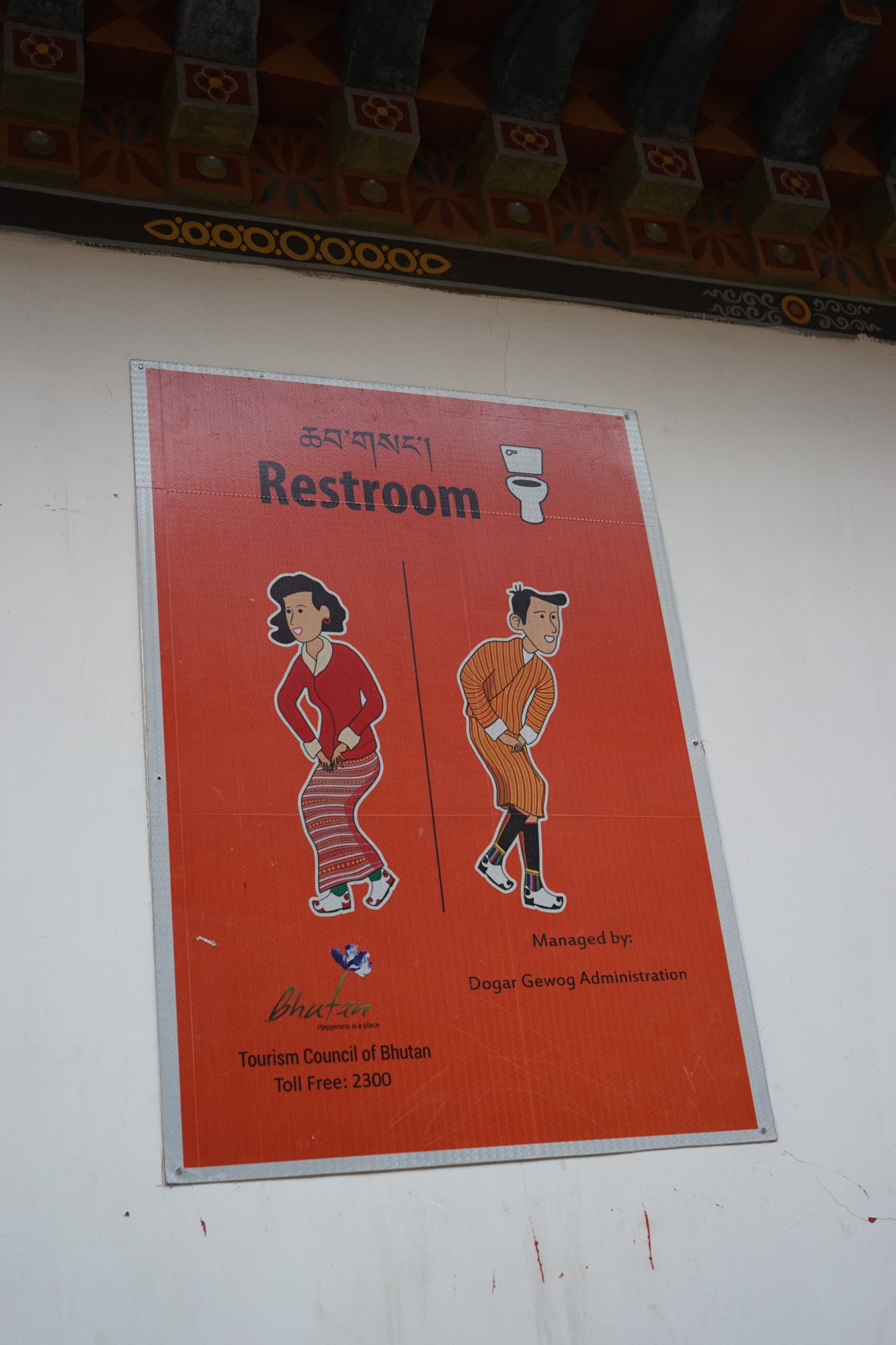
Obviously it is counter intuitive – certainly counter productive for a Tour Guide to think, much less write, this way. And goodness knows I still need people to travel that I might pay my bills. I also have an unshakable faith in what we take from travel is nothing less than treasure; education, new friends, opened minds, memories, photos and even, heaven forbid souvenirs. Indeed nowhere, before Bhutan that is, has ever challenged me in this way. When I led my first group through Paris, the Belle Époque of the 1920s was long gone, it had already changed. Likewise as a rookie tour guide when I first ushered a group into the Colosseum, it aleady took longer to enter than it did in ancient Roman times. But Bhutan is different.
It is soon time to check-in to my 11th flight in two weeks. Soon Bhutan and it’s wonderful people will be a memory. But if successfully received, the package that our stay will have created, means wonderful Bhutan is a place that will now be lodged on my work calendar two or three times per year in the foreseeable future. I’ll be back.
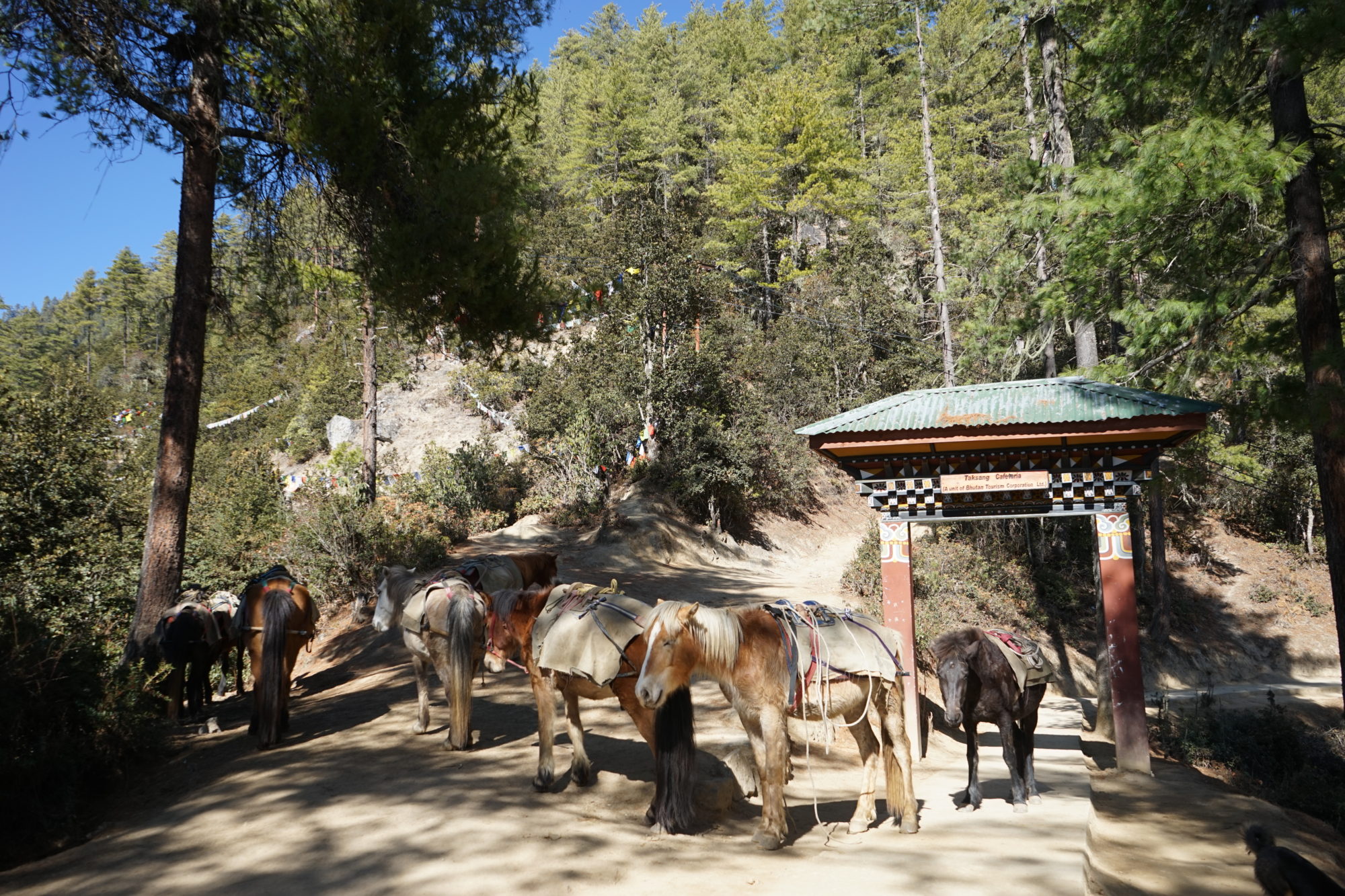
The flight out of tiny Paro airport is one of the most dangerous take offs (and landings) in the world. After a short dash along the runway the pilot dips the plane violently to the left in order that the right wing avoid the mountainside. Not many are able. But our chap is skillful and soon we are up and heading West. Everest appears peaking through the clouds. My mind once again recalls Lost Horizon and Bhutan seems again a mythical place. Was it all real?
Perhaps in recently becoming a father, I have become more aware of what I am part of leaving behind. And what it is my duty to teach. Not so much in my case (yet) from an altruistic environmentally preserving attitude, more one of – which genuinely cool, off the beaten path, authentic places will my son have left to discover and explore when he is ready? We spent six days explaining the investment cost required to satisfy the sanitary needs of the British. In turn we were taught the priceless value of happiness.
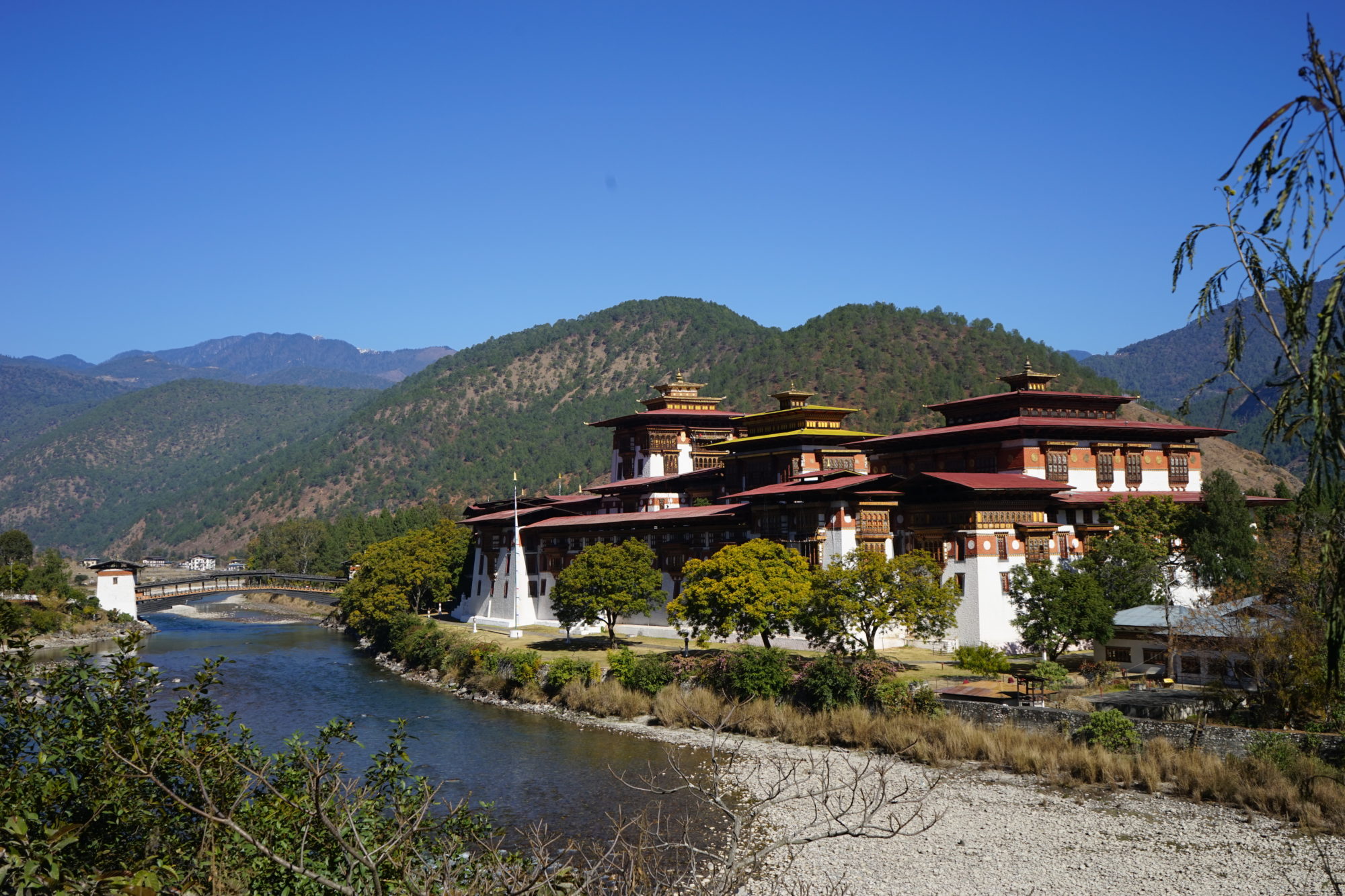
I never heard anyone in Bhutan referring to it as Shangri-La, a marketing ploy that would be so easy. But if billed as Shangri-La would Bhutan be setting itself up for failure? If Shangri-La can be anything to any man, then surely it can never collectively be found. And any traveller there would not find what they are seeking. Some say the real Shangri-La lies in another dimension anyway. Perhaps inter-dimensional travel soon will be the only kind of travel if we truly seek authenticity and the chance to once again explore and discover.
“We have reason. It is the entire meaning and purpose of Shangri-La. It came to me in a vision long, long ago. I foresaw a time when man exalting in the technique of murder, would rage so hotly over the world, that every book, every treasure would be doomed to destruction. This vision was so vivid and so moving that I determined to gather together all things of beauty and culture that I could and preserve them here against the doom toward which the world is rushing. Look at the world today. Is there anything more pitiful? What madness there is! What blindness! A scurrying mass of bewildered humanity crashing headlong against each other. The time must come, my friend, when brutality and the lust for power must perish by its own sword. For when that day comes, the world must begin to look for a new life. And it is our hope that they may find it here.”
― James Hilton, Lost Horizon

Your 2020 May trip to Bhutan and Nepal looks like it is only 4 days: Is this a typo? And you go in the winter. I am looking for warmer weather. As a California resident, I am not long on snow gear.
Transportation: Am I on my own to arrange transportation?
Prior experience with you: You are highly recommended by Maria and Bob Prince, who traveled with you through Road Scholar in France and Spain. Is the Bhutan and Nepal trip your creation? Is there a travel agency that handles it?
I have wanted to travel to Tibet. But Tibet is proving to be a bit challenging to arrange satisfactorily. At my age (78) I do need some amenities. I am a hardy traveler and love to travel. In the past ten years I have visited: Iran, Egypt, Uzbekistan, Turkey, Jordan, Portugal, Spain, Italy, France.
Looking forward to your reply.
Helen Meek
helenmeek@sbcglobal.net
Dear Helen, thanks for your interest… I will email you directly 😉